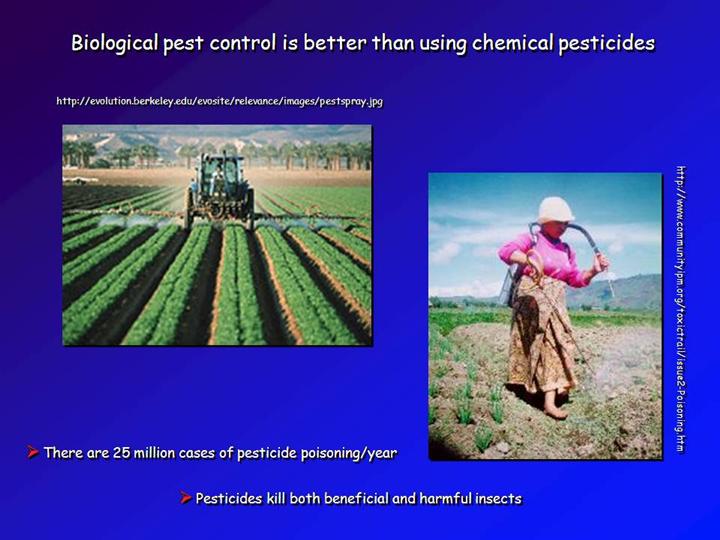| front |1 |2 |3 |4 |5 |6 |7 |8 |9 |10 |11 |12 |13 |14 |15 |16 |17 |18 |review |
 |
Both people and wildlife benefit from insect-resistant crops. Pesticides are applied quite safely using climate-controlled tractors in the highly mechanized agriculture of developed nations, but there are some 25 million cases of pesticide poisoning every year in less developed countries where farmers often have little protection, applying it from backpacks. Moreover, pesticides kill a broad spectrum of insects, both harmful and beneficial. In just 12 years between their their initial introduction in 1996 and 2008, insect resistant GM cotton and corn have reduced the amount of pesticide used by almost 290,000 metric tons of active ingredient. That means more insects and more wildlife, such as birds, which can thrive along with crops. In China, farmers growing GM rice reduced their pesticide use by nearly 80 per cent and more than half of them used no pesticide at all. More than 10% of farmers growing conventional rice showed symptoms of pesticide poisoning, while none of the farmers growing Bt-resistant rice did. http://evolution.berkeley.edu/evosite/relevance/
http://www.communityipm.org/toxictrail/ |